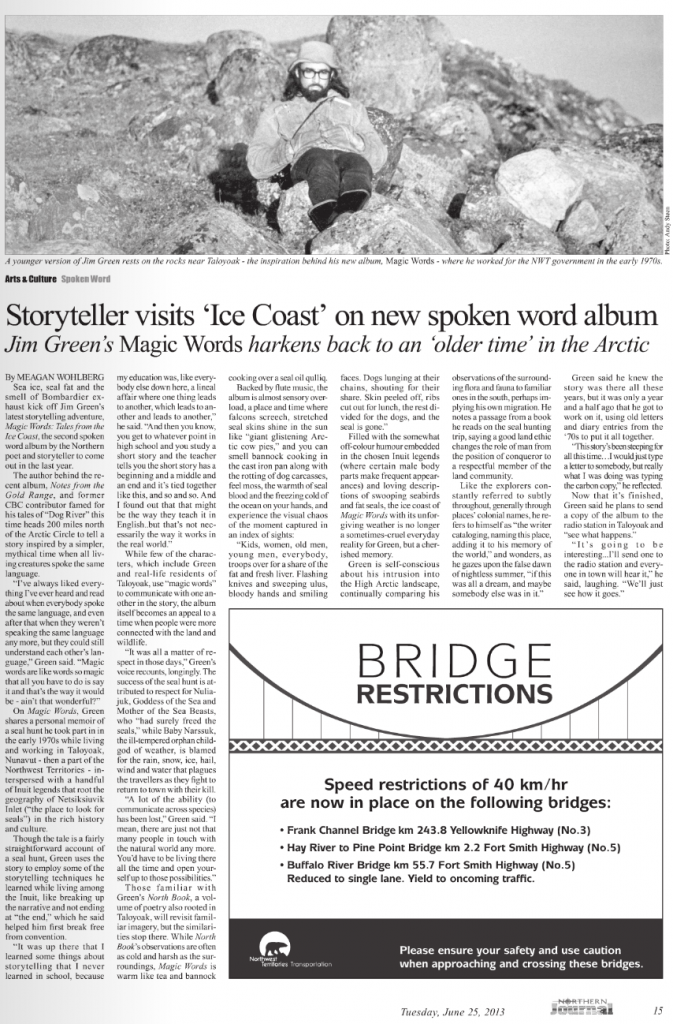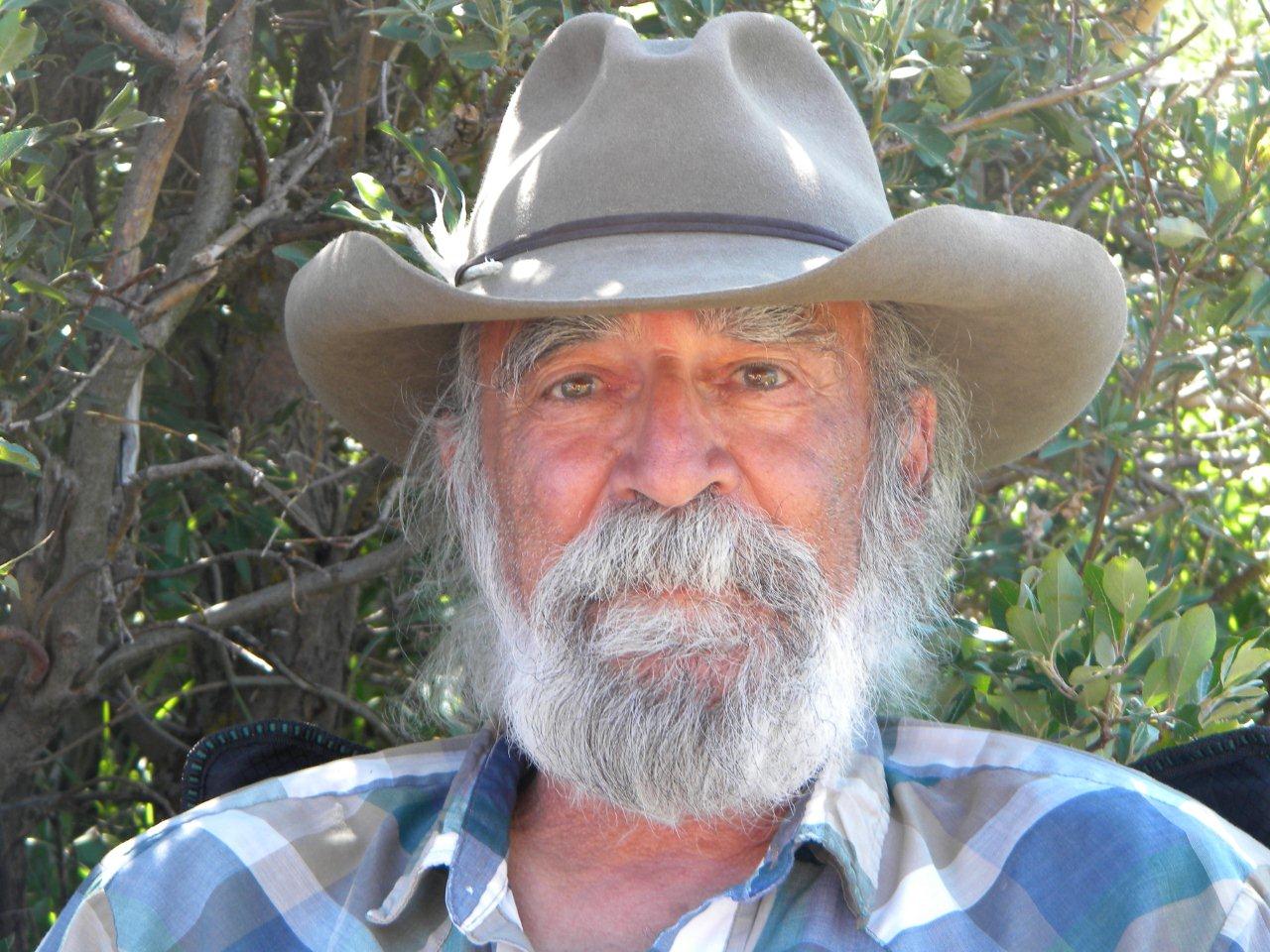Northern Journal, November 5, 2013
Whit Fraser said if I valued my family jewels, I better not testify at the Berger Inquiry into the Mackenzie Valley Pipeline. We were sitting in my living room in Wha Ti, still called Lac La Martre in those days, in August 1977. Whit told me the Government of the Northwest Territories would have my knackers for bookends if I spoke out. He said the poop had hit the fan when he, a CBC employee, had testified at Norman Wells, one year earlier.
My house beside the lake was like an overrun refugee centre in the aftermath of a devastating typhoon, or the train station in Calcutta on Friday night. It was the flop house for the media crew: Whit Fraser, Abe Okpik, Joe Tobey, Jim Sittinchinli, Louis Blondin, Joachim Bonnetrouge and a bunch of other folks I’d never met before. People lazing in all the rooms, draped over the furniture, sprawled out on any available stretch of floor. Talking, scribbling notes, typing, eating, drinking, playing cards, reading.
The Berger Inquiry was a Big Deal. I’d been listening to the CBC coverage from all down the valley, Yukon and points south across the country for well over a year.
Listening to Charlie Furlong, Tommy Ross, Freddy Greenland, Wilf Bean, Philip Blake, Frank T’Selie, Claire Barnaby, Earl Dean, Rene Lamonth, Gerry Cheezie, Sam Raddi, Roy Goose, Les Carpenter, Peter Green, Paul Andrew, Raymond Yakaleya, Steve Kakfwi, George Blondin, Phoebe Nahanni, Gina Blondin, and Richard McNeely.
Listening to Richard Nerysoo define what was a stake – “We are fighting for our survival as a free people,” he said. Listening to James Wah-shee clarify history by saying – “The Treaty was signed when it was discovered that our land was more valuable than our friendship.”
Listening to Jim Antoine say that he was willing to lay down his life to stop the pipeline. To Bill Lafferty who come out in favor of the pipeline. He wasn’t much worried about the adverse spin-offs – “I don’t think an Indian drunk is any stupider that a White drunk,” he said.
Francois Paulette questioned the big rush to get the pipeline flowing. “The earth is going to be here all the time. It’s not going to be taken away. Why are they rushing?”
And George Erasmus, president of the Dene Nation: “Our struggle,” George said, “is for self-determination. We want to be in charge of our lives and our future. We want to be our own boss. We want to decide what is going to happen on our land. Our position is that there can be no pipeline until after our land claims are settled.”
For seventeen months I’d been listening to the Berger Inquiry on CBC radio. It had finally arrived in Lac La Martre and Whit Fraser told me; (he didn’t tell me not to speak,) he told me I’d better think carefully about it.
I asked Whit if he remembered why he spoke in Norman Wells the year before. Sure, he remembered, he said. He spoke out because it was something he had to do. Me too, I told him. Well then, go for it, Whit said, but don’t say I didn’t warn you.
So I did. And what I said to Judge Berger wasn’t anything subversive or even earth-shattering. I simply asked him to listen well to the Dene people that spoke to him because they were speaking about our future too, the future of our country and the future of our children and our grandchildren.
The government didn’t fire me. They probably didn’t even know about it.
But Canada knew about Tom Berger’s report when it came out. And there was no pipeline.
Jim Green was at the opening of the Berger Inquiry Exhibit at the College last week. It triggered hundreds of memories for him because he addressed the Inquiry himself at Wha Ti in August 1977.


